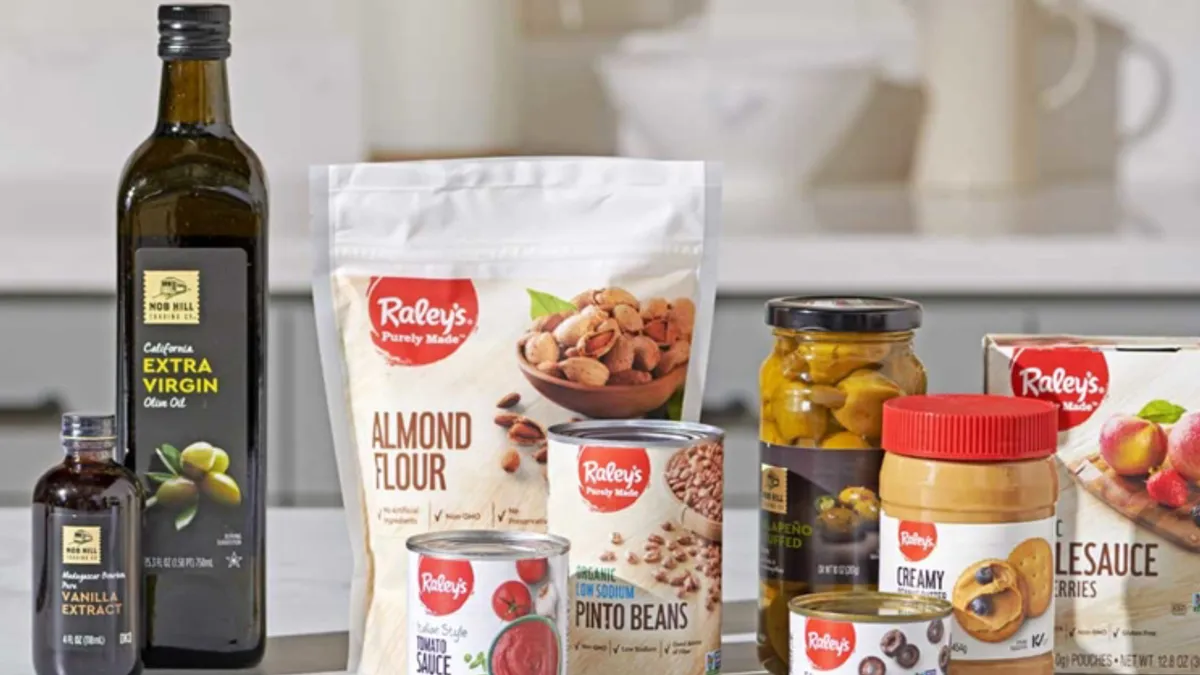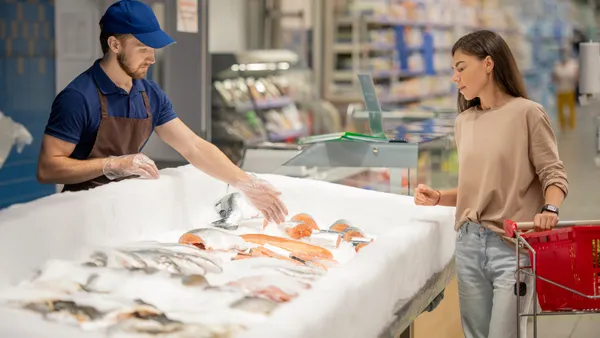Dive Brief:
- Raley’s announced a "relaunch" of its private label program, which includes Raley's, Raley's Purely Made, and Nob Hill Trading Co. brands, according to a release. Each brand line gets a facelift, with fresh packaging designs.
- The California grocer will also expand its Purely Made line, adding stricter standards and protocols. It already prohibits products containing over 101 artificial preservatives and ingredients, and Raley's — after product research and analysis of relevant legislation — is adding additional ingredients, including FDA-approved carrageenan.
- All of Raley's relaunched products will feature the new FDA Nutrition Facts panel, which standardizes serving sizes and lists added sugars, among other changes.
Dive Insight:
Traditional supermarkets are trying to keep up with consumers' shifting demands for products that are free of certain ingredients like artificial flavorings and colorings. While a new wave of natural food grocers are orienting their products around these trends, existing retailers are now pivoting their traditional private label products into the natural foods segment.
This isn't Raley's first go at becoming more health focused. In August 2018, Raley's created a nutrition strategist and brand influencer role to help evolve its brand and to increase healthy product offerings in the store. Other initiatives the company took last year include "better for you" checkout lanes, the elimination of tobacco from stores and the transformation of its cereal aisle, which moved sugary cereals to the lower shelves.
The company's latest move to relaunch its products continues to align with this strategy and leverage current trends in organic food, as well as private label. According to USDA data, organic product sales continue to double in growth, giving grocers a big incentive to create a competitive in-house offering to keep customers from switching stores. Retailers also do not want to miss out on earnings that come from private label lines. The Private Label Manufacturers Association reported that private label brands yield roughly $120 billion a year.
A number of big-box grocers have launched their own natural foods or organic product lines. As early as June 2013, Target introduced Simply Balanced as part of an effort to increase its organic offerings by 25%. Walmart jumped on the bandwagon in 2017 by introducing Great Value Organic, and Amazon is now urging product makers to develop private label brands for exclusive offering on its website, promising quick customer feedback, marketing assistance and a prime position in product search results.
As for updates, Raley's is not the first to hit the refresh button. Hy-Vee announced plans to remove over 200 artificial ingredients and chemicals from 1,000 store brand products, while Kroger introduced 1,000 new private label grocery and household items totaling 30,000 products. Southeastern Grocers introduced three private label tiered brands ranging in price and quality. Last year, Albertsons announced plans to grow its O Organics brand by 50% as sales reached $1 billion.
The decision is not to be taken lightly, however, as the endeavor can be expensive and the new aesthetic may not make its intended splash. But, to stay relevant, it’s important for brands to be upgraded every three to five years.












